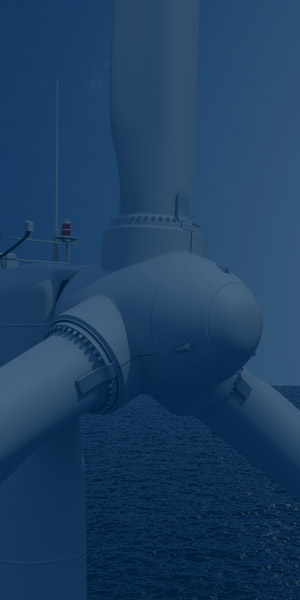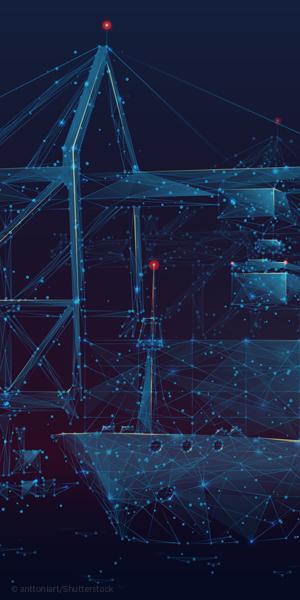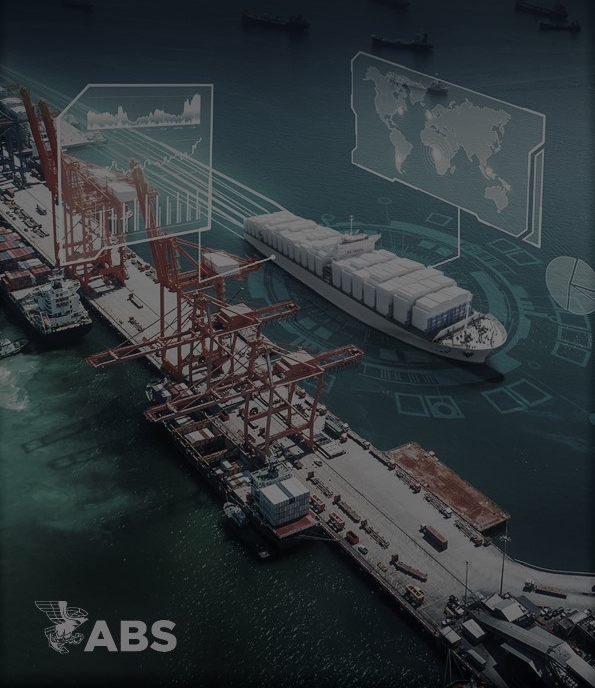Quick Links
- Ammonia Overview
- Production
- Transportation and Storage
- Utilization
- Value Chain
- ABS Support
Why ammonia?
Ammonia (NH3) is one of several alternative fuels being evaluated by the maritime industry and offers potential as a zero-carbon fuel or a carrier for hydrogen fuel. Ammonia is already a globally traded commodity, with around 235 million tonnes produced each year, much of which is used in agricultural applications. Despite ammonia’s significant toxicity and stringent handling requirements, the potential infrastructure for large-scale transportation and bunkering could be adapted quickly.
What are the benefits of ammonia as a marine fuel?
Ammonia has the potential to enter the global market relatively quickly and ultimately serve as one of a basket of fuels that could help the global fleet meet the greenhouse (GHG) reduction target for 2050 set by the International Maritime Organization (IMO).
- Marine engines are currently being developed by applying existing dual fuel (DF) technologies.
- Ammonia is a zero-carbon fuel and releases no carbon dioxide (CO2) emissions when consumed in engines apart from the pilot fuel.
- Ammonia has a low flammability risk.
- Ammonia can be produced using renewable electrical energy, making it a well-to-wake (WTW) zero-emission option.
- Ammonia can act as a carrier for hydrogen, alleviating some of the storage and transportation challenges associated with hydrogen’s low energy density.
- Ammonia can be stored and transported as a liquid at practical pressure and temperature using existing infrastructure and tanks.
Around 235 million tonnes of ammonia are produced annually, and global production capacity is expected to increase to around 289 million tonnes by 2030.
The availability of ammonia has made it an attractive alternative fuel for the maritime industry, however, most of the ammonia produced is used in fertilizers and has an essential role in the ever-growing global agriculture industry. Because of this, ammonia production would need to continue to expand to support both the growing food industry and the global energy transition.
The carbon emissions released during the production of ammonia, or well-to-tank (WTT), also need to be considered.
Ammonia is typically created by combining nitrogen with hydrogen and is an energy-intensive process overall. Most of the hydrogen produced globally is done through the processing of coal, natural gas or other fossil fuels, ultimately increasing the life cycle emissions of ammonia fuel.
Using carbon capture technology (blue ammonia) or renewable energy sources (green ammonia) to produce hydrogen feedstock as well as in the final ammonia production process would help alleviate production emissions challenges and make ammonia a zero-carbon WTW option.
Ammonia is a globally traded commodity and is commonly transported by marine vessels. It is frequently loaded or unloaded to and from ships and gas terminals, offering the industry a relatively mature infrastructure not currently available with other alternative fuels.
While the operation of transferring ammonia to and from ships at ports does not differ greatly from established bunkering processes for other fuels, bunkering of ammonia fuel will necessitate the establishment of provisions and guidelines for safe handling and bunkering procedures.
There are three key areas to consider when transporting and storing ammonia.
Toxicity
Ammonia is toxic to humans and aquatic life, and direct exposure must be limited to permissible limits for the safety of personnel and the environment. In low concentrations, ammonia can be irritating to the eyes, lungs and skin while high concentrations or direct contact can be life-threatening.
Corrosiveness
Ammonia is incompatible with various industrial materials. In the presence of moisture, it reacts with and corrodes copper, brass, zinc and various alloys. Materials used for the storage and loading and unloading of ammonia should be carefully selected to limit the potential of leaks. Iron, steel and specific non-ferrous alloys resistant to ammonia should be used for tanks, pipelines and structural components where ammonia is used.
Fire Risk
Though ammonia has a relatively low fire risk due to its narrow flammability range, relatively high ignition energy (2-3 orders of magnitude higher than common hydrocarbons) and low laminar burning rate (more than four times less than methane), there is still potential for ammonia fires in the right conditions and ammonia should be isolated from any ignition sources. The fire risks of ammonia when mixed with other fuels and lubricating oils are still being investigated.
These challenges need to be considered in the design of ammonia carriers, bunkering vessels or vessels using ammonia as a fuel or a carrier for hydrogen fuel. In addition, dedicated safety regulations need to be developed and implemented to enable the safe application of ammonia fuel.
Though there are historical references for using ammonia as a fuel in internal combustion engines, first demonstrated in a locomotive in 1822, ammonia is in the early stages of development for marine propulsion. Purpose-built ammonia-fueled engines are under development, and ammonia use is also being explored in fuel cells.
However, using ammonia in existing internal combustion engines has known drawbacks.
Ammonia typically requires a hydrocarbon pilot fuel injection in two-stroke diesel cycle engines, increasing carbon emissions though lower than engines burning only traditional fuels. In addition, when ammonia is combusted in compression ignition engines, significant amounts of nitrous oxides (NOx) are generated due to the high temperatures and pressures involved. NOx emissions are strictly regulated by the IMO and need to be considered in future ammonia engine development.
Ammonia as Hydrogen Carrier
Interest is growing in the use of ammonia as a feeder to hydrogen-fed fuel cells, especially in gas carriers already carrying ammonia as cargo.
Hydrogen fuel offers several zero-emissions benefits, but technical advances are needed before it can be considered a viable, large-scale, commercial fuel option, particularly for marine applications where energy content on a volumetric basis is relatively low and application would significantly impact ship design.
Storage of liquid hydrogen requires cryogenic storage, dedicated fuel supply systems and at least five times more volume compared to petroleum-based fuels. Compared to hydrogen, ammonia storage is more practical due to its energy density and storage temperatures.
Hydrogen could be cracked from ammonia to provide an abundant resource for fuel cells to generate electric power, though ammonia’s storage advantages would need to be weighed against energy losses and additional equipment required for the conversion.
The use of ammonia fuel cells is still relatively experimental, but the current pace of development is accelerating.
Zero-carbon fuels such as ammonia and hydrogen have great potential to lower the carbon footprint of shipping, particularly when using TTW criteria. However, one of the challenges of alternative fuels being considered is their lower energy content compared to conventional fuel oils such as HFO.
The use of ammonia as a fuel is expected to grow due to its zero-carbon content, easier distribution, storage, and bunkering compared to hydrogen, and its suitability with existing and emerging technologies for propulsion and power generation.
ABS can assist owners, operators, shipbuilders and original equipment manufacturers as they consider the practical implications of the use of ammonia as fuel. Services offered include:
- Risk assessment
- Regulatory and statutory compliance
- New technology qualifications
- Life cycle and cost analysis of ammonia fueled vessels
- Vessel/fleet benchmarking and identification of improvement options
- NOx emission reduction options
- EEDI verification and identification of improvement options
- Optimum voyage planning
- Alternative fuel adoption strategy
- Technoeconomic studies
- Cyber safety notations and assessments
- Contingency arrangement planning and investigation




































